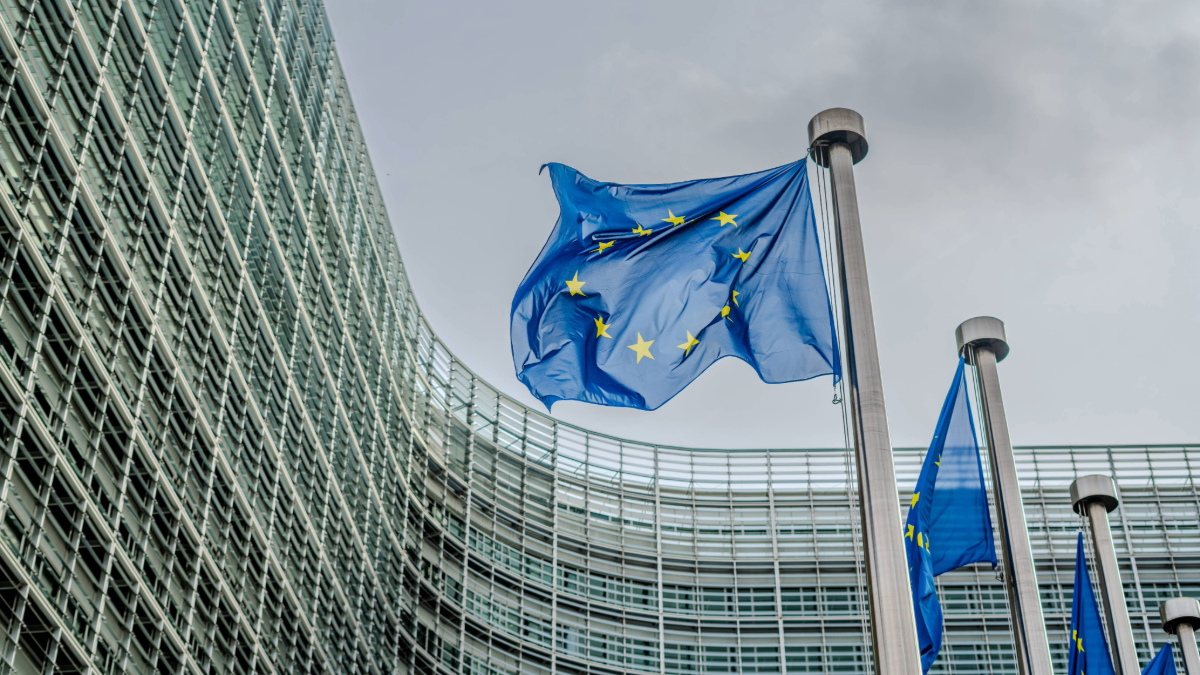Enforcement of EU's Tech Laws Should Not Be Traded Away
Svea Windwehr / Jul 22, 2025Svea Windwehr is co-chair of D64 and a member of the advisory council of the German Digital Services Coordinator. This article is written in a personal capacity.
Last week, The Financial Times reported that the European Commission had stalled its investigation into non-compliance by X under the Digital Services Act (DSA). Ever since US President Trump's second term in office began, experts have been warning that the EU's digital laws might become caught up in the transatlantic trade storm unleashed by Trump's "America First" agenda and his proximity to Silicon Valley.
These concerns were never unfounded. Already during the US election campaign, the now-Vice President, JD Vance, threatened that the US might withdraw its support for NATO if the EU tried to regulate Elon Musk’s X (who spent more than a quarter billion dollars on supporting Trump's campaign). Apple’s Tim Cook and Meta’s Mark Zuckerberg (who both had also donated to Trump) wasted no time complaining to Trump about EU tech regulation and asking him to intervene on their behalf. Most recently, in June, the US Trade Representative’s office circulated a draft “agreement on reciprocal trade” that suggested the US and EU enter into a "dialogue" on how to implement the DSA’s sister law, the Digital Markets Act (DMA).
In light of the worrying signals coming out of the US, civil society leaders, Members of the European Parliament, and Member States have asked the European Commission again and again not to delay, weaken, or otherwise undermine the enforcement of key laws like the DSA and the DMA. In response, the European Commission has publicly reiterated its commitment to enforcing the European legal framework for tech companies at the highest level.
Now, there are indications that one X investigation has been delayed to avoid jeopardizing the current high-stakes trade negotiations between the EU and the US. Of course, delaying the announcement of a fine is not the same thing as abandoning the enforcement of the DSA, and the bulk of the investigation has likely already been completed. The reports of the past week should not be taken as definitive proof that the European Commission is reneging on its earlier commitments to uphold EU law.
Still, the rumors coming out of Brussels paint a worrying picture. Delaying a prominent DSA investigation amid trade talks appears to lend legitimacy to the argument that fines for not complying with European laws present non-tariff barriers to trade. This is an argument that Mark Zuckerberg already articulated back in January, and that has been echoed by the White House, which called the fines against Apple and Meta for failing to implement the DMA economic extortion. Painting the DSA and DMA as non-tariff barriers to trade assumes that the laws unfairly target American companies by raising the cost of conducting business to protect domestic industries.
Needless to say, this is not the case. Neither the DSA nor the DMA was designed to protect the European tech industry. Whereas the DSA proposes due diligence rules to protect users’ rights and make tech platforms more transparent and accountable, the DMA aims to prevent the abuse of market power by introducing ex-ante rules to prevent the unfair accumulation of power. Both laws reverse the most stringent obligations to the largest players, with the most significant degree of economic and societal influence. Many, but not all, of these companies are indeed American. This reflects the current (near) monopolization of many digital markets.
Nevertheless, the DSA and DMA do not unfairly target US companies. Rather, they reflect the prerogative of democratic governments to set limits on economic activities to promote justice, health, and sustainability in our societies, or, in this case, to ensure that digital platforms and markets are fairer, more accountable, and more transparent.
Delaying the enforcement of the DSA not only risks misframing it as a barrier to trade, but it also reinforces the concerning perception that European (tech) law could be subject to manipulation.
Almost since the beginning of its current mandate, the European Commission has been kindling a deregulatory bonfire that threatens to roll back tech regulation, environmental, and social protections. In the name of strengthening ‘competitiveness’ to help the straggling European economy, the Commission has launched a massive simplification” agenda. Following complaints from industry, the Commission has already withdrawn the AI liability directive. Now, Von der Leyen’s Commission is putting the axe to laws that were considered key achievements of its previous term, including rules on cooperative due diligence, supply chains, and the AI Act. The DSA itself may become part of an upcoming omnibus bill that includes simplification measures.
Signaling that the enforcement of the DSA may be related to trade negotiations implies that any legislation inconvenient to industry could be open to negotiation. It places a matter that should be dealt with as objectively and dispassionately as possible, firmly in the arena of politics. Politicizing the enforcement of the DSA and similar laws raises questions about whether the European Commission is best placed to act both as the enforcement authority and executive. This could seriously damage the often-invoked image of the European Union as a champion of the rule of law, potentially harming Europe's long-term credibility.
As of today, not all is lost. The European Commission still has the opportunity to conclude its investigation into X and push forward its DSA enforcement agenda that has led to more than 60 initiated enforcement actions to date. However, placing trust in public institutions should always be accompanied by scrutiny from civil society and independent experts to be able to hold the same institutions to account. The stakes are too high to allow the enforcement of European law to be used as a bargaining chip in escalating transatlantic trade disputes.
Authors

